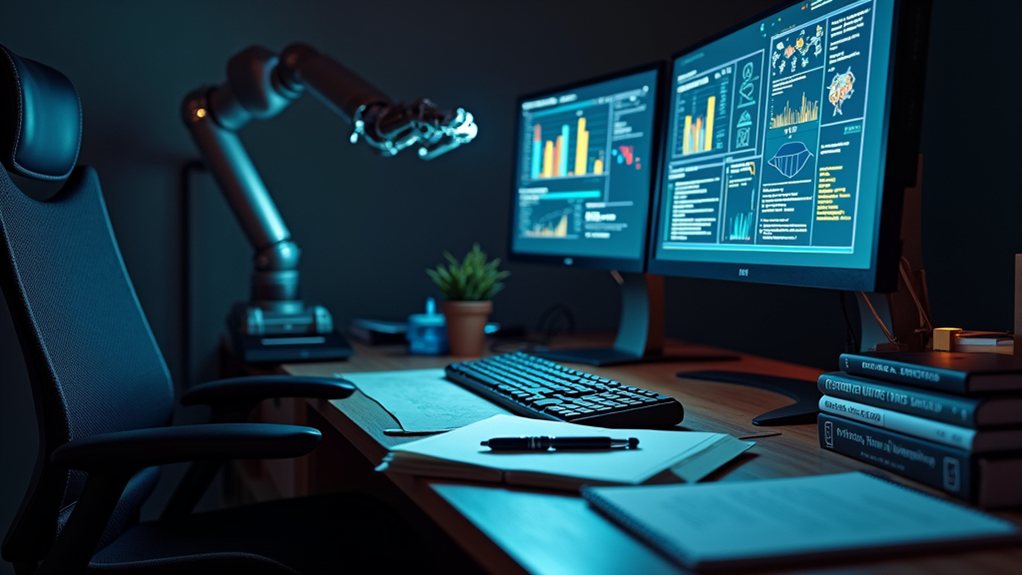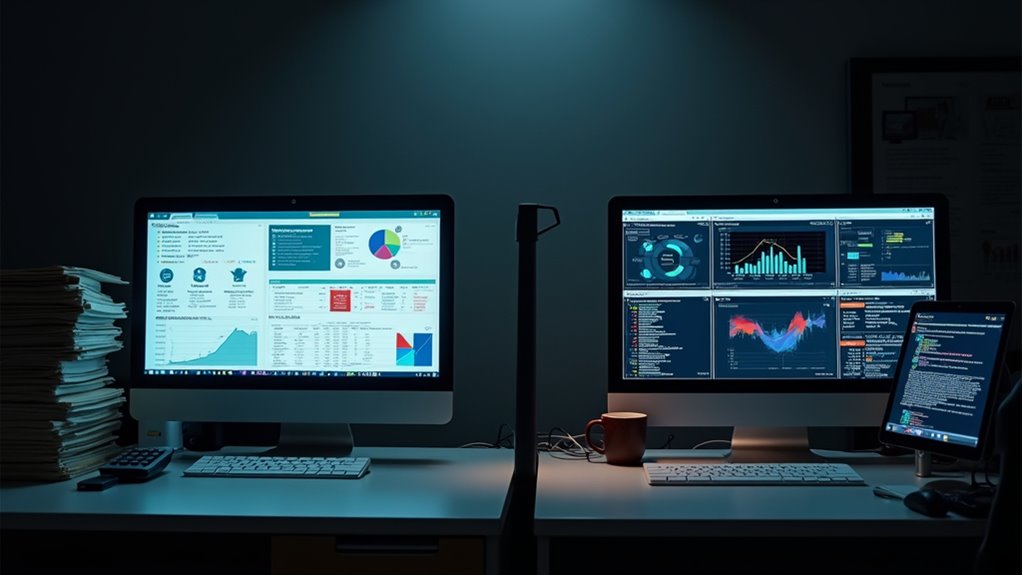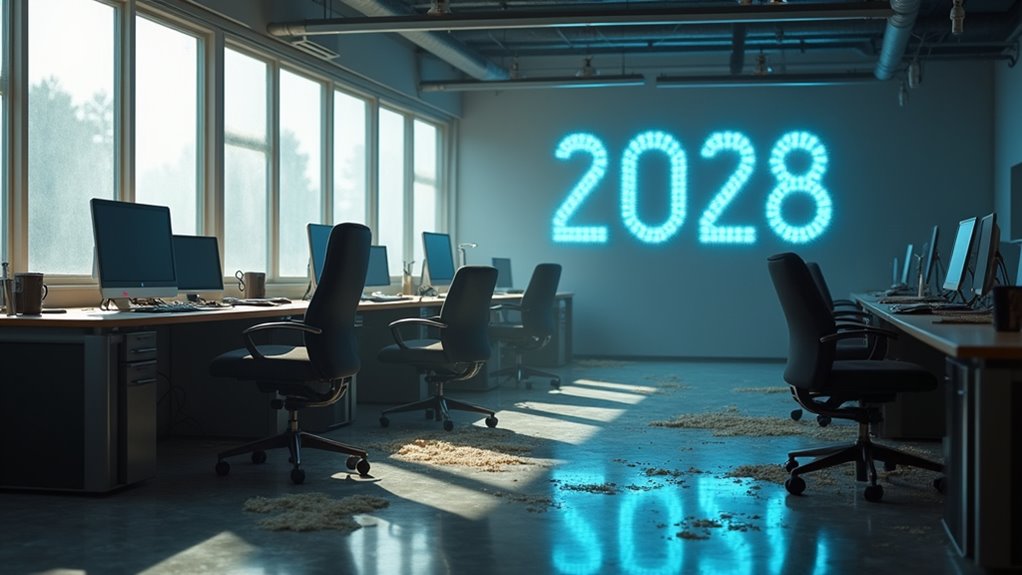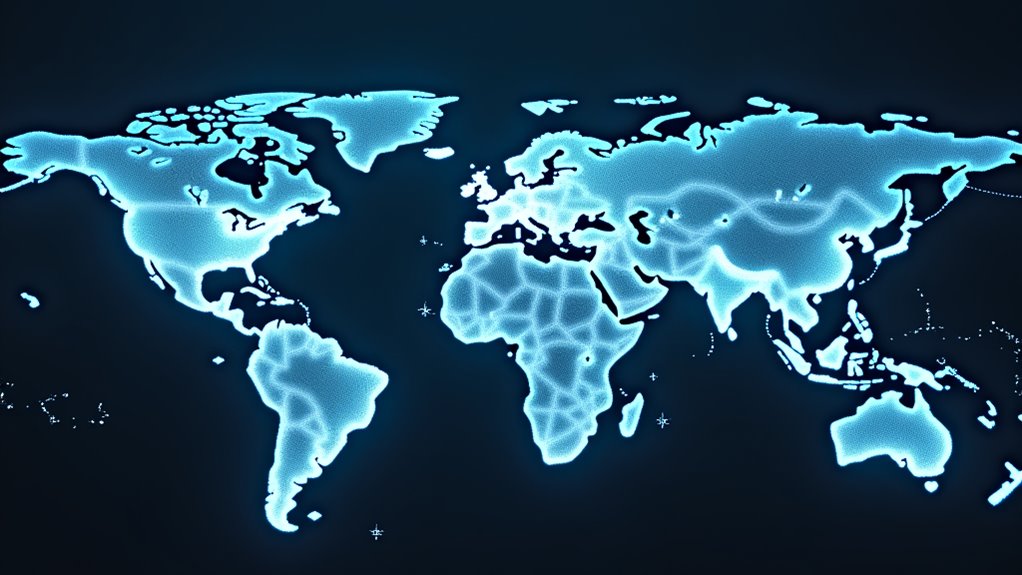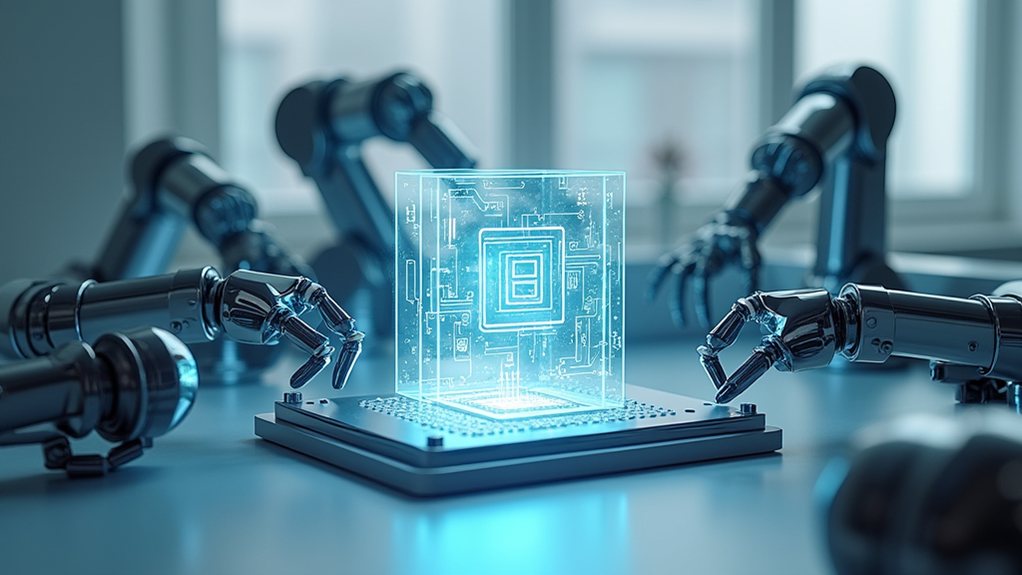While some economists warn of AI-driven job apocalypse—with 300 million positions potentially at risk by 2030—history tells a different story. Technology typically transforms rather than eliminates employment entirely. Yes, 30% of US companies have already replaced workers with AI tools, but the tech struggles with empathy and relationship-building. Most workers actually believe AI will enhance human capabilities rather than render them obsolete. The real challenge isn’t extinction but evolution.
Artificial intelligence is quietly reshaping the employment landscape while most of us are still figuring out how to use ChatGPT without embarrassing ourselves. According to recent projections, a staggering 300 million jobs globally could be at risk by 2030 due to AI advancements—that’s roughly the population of the United States, all potentially updating their LinkedIn profiles simultaneously.
While we’re all struggling with ChatGPT, AI is quietly preparing to send 300 million people job hunting by 2030.
The numbers are sobering. Nearly half of American workers might see their roles threatened within the next decade, with advanced economies facing 60% of jobs at risk of AI replacement. Meanwhile, those fresh-faced Gen-Z workers (ages 18-24) are 129% more likely than their retirement-adjacent colleagues to fear becoming professionally obsolete—perhaps explaining their obsession with “future-proofing” their careers between TikTok scrolling sessions.
It’s not all doom and gloom in this robot takeover. History suggests technology creates as much as it destroys. Despite concerns, most workers believe AI will actually elevate human skills rather than render them obsolete. Over 60% of today’s jobs didn’t exist in 1940—imagine explaining “social media manager” or “cloud solutions architect” to your great-grandparents.
The economy often experiences worker shortages rather than job shortages, suggesting AI might simply shift the playing field rather than shrink it. The transition is already underway with 30% of US companies having replaced workers with AI tools.
The skills landscape is evolving rapidly, with 81% of employees noting changing requirements due to AI. While algorithms excel at data analysis, fraud detection, and even some HR functions, they’re still terrible at empathy and building authentic relationships—skills that humans haven’t quite managed to outsource to silicon. Unfortunately, AI systems often inherit biases from their training data, perpetuating human prejudices in automated decision-making processes.
For many, adaptation is inevitable. About 14% of workers may need complete career changes by 2030, with reskilling becoming essential rather than optional.
The good news? AI users report spending more time on meaningful, strategic work—93% say the technology allows them to focus on what actually matters.
The sectors facing the greatest disruption involve routine tasks, while healthcare and creative fields remain relatively sheltered. Perhaps the most hopeful sign: as AI evolves, so too does our understanding of what makes us uniquely, irreplaceably human.

